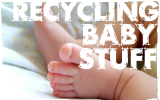How can I use up leftover baked/jacket potatoes?
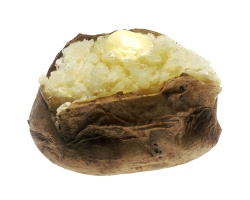 So, the reason for this post and it being posted considerably later than usual is the same thing – we had a bonfire night party last night — great fun but it ended somewhat late for a school night. Prior to Wednesday, it had just been a couple of friends coming around to burn things then play Guitar Hero, then it suddenly became a whole bunch of people (including one six week old person) coming around for food and flames. I, unwisely, decided I’d be able to make two soups and two cakes in the hour-and-a-half I had between getting in from the office and people starting to arrive… Not recommended.
So, the reason for this post and it being posted considerably later than usual is the same thing – we had a bonfire night party last night — great fun but it ended somewhat late for a school night. Prior to Wednesday, it had just been a couple of friends coming around to burn things then play Guitar Hero, then it suddenly became a whole bunch of people (including one six week old person) coming around for food and flames. I, unwisely, decided I’d be able to make two soups and two cakes in the hour-and-a-half I had between getting in from the office and people starting to arrive… Not recommended.
Anyway, alongside the soup, sausages and parkin, we cooked a load of jacket potatoes – both normal white potatoes and sweet potatoes – but not all of them were eaten: we’ve got a GIANT sweet potato left over and four medium size white potatoes.
When I’ve been in a similar situation in the past, I’ve tried reheating potatoes in the microwave but it had less than desirable results. Anyone got any techniques for a more successful reheating? Is the oven the answer?
What about other ways to use up the potatoes? If we didn’t already have two lots of leftover soup, I’d possibly use one or two in there. A mash-topped pie might work too. Any other suggestions?



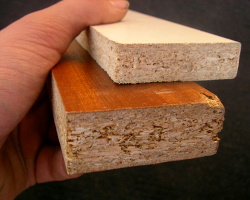 We’ve had an email from Ben, asking what he can do with some old chipboard/particleboard furniture:
We’ve had an email from Ben, asking what he can do with some old chipboard/particleboard furniture: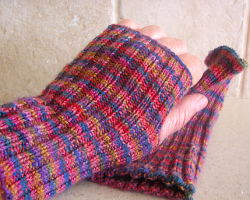 A few weeks ago, I made
A few weeks ago, I made 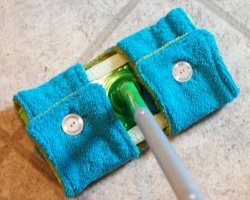 This week’s quick link round-up:
This week’s quick link round-up: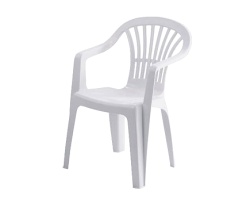 We’ve had an email from Charlotte:
We’ve had an email from Charlotte: